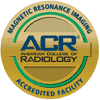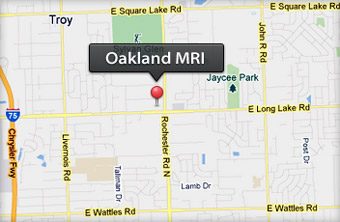Magnetic Resonance Imaging uses friendly magnetic fields to produce an unparalleled view inside the human body. MRI has become the diagnostic imaging modality of choice for most malignancies and neurological diseases of the brain and spine including:
- Brain tumors
- Alzheimer’s Disease
- Cervical cancer
The technology’s ability to generate, non-invasively, superb anatomical details of both bone and soft tissues has made MRI the preferred modality for most orthopedic applications including imaging of:
- Knee, hip, shoulder, wrist, elbow
- Ligaments and tendons
- Back pain and failed back syndrome

